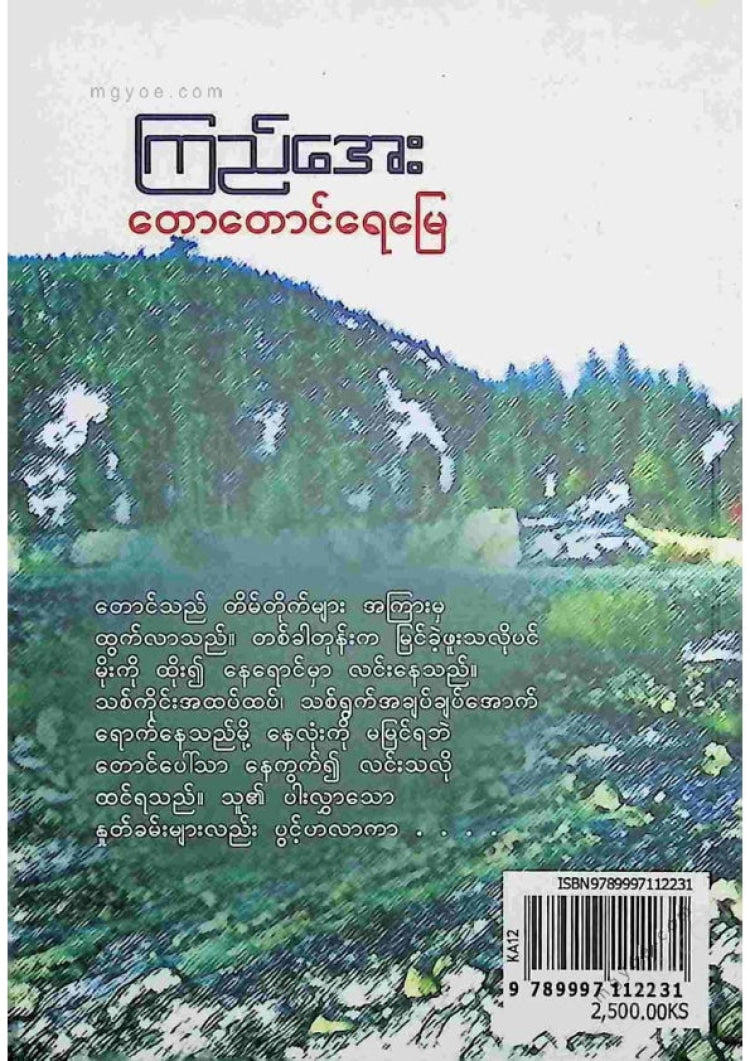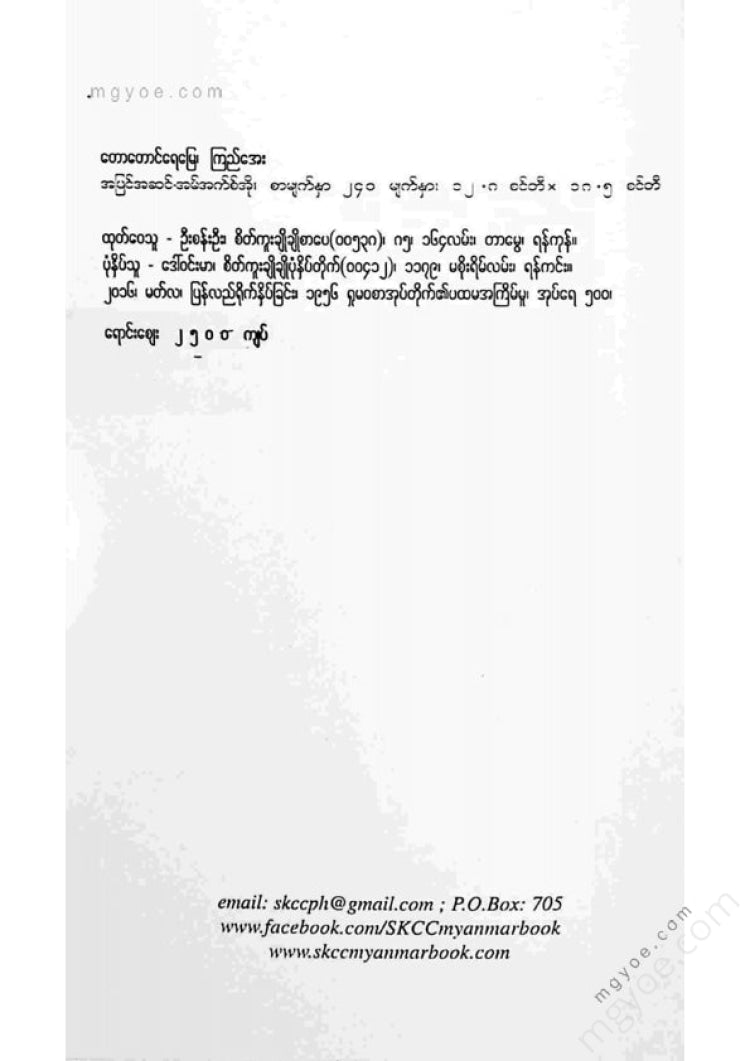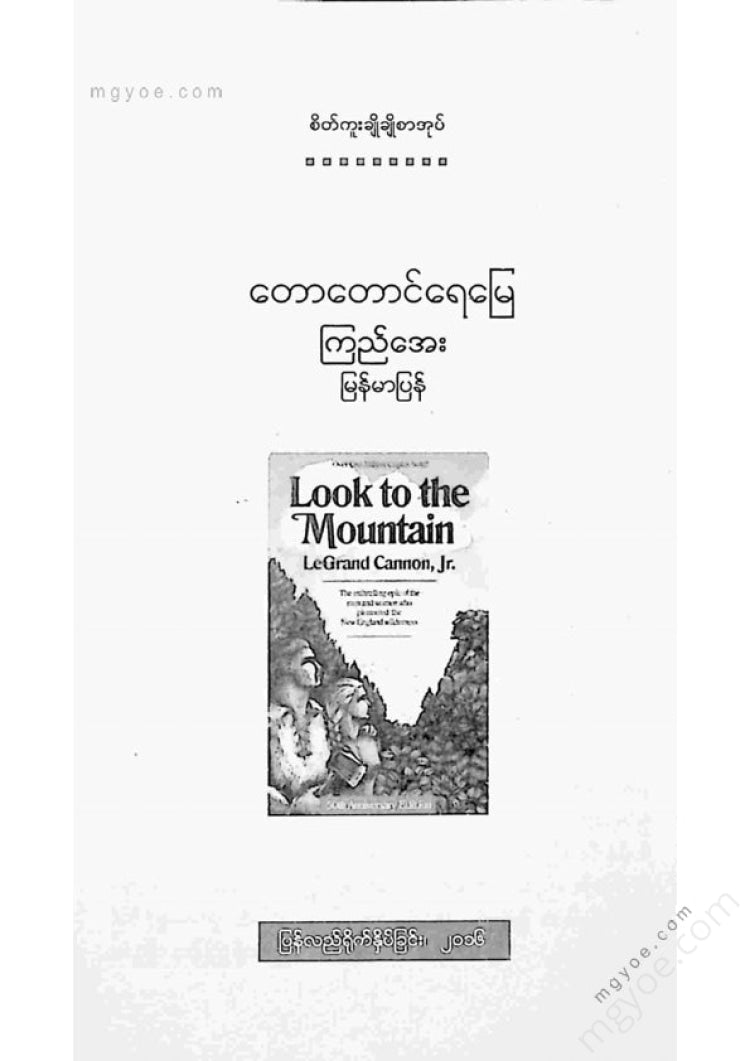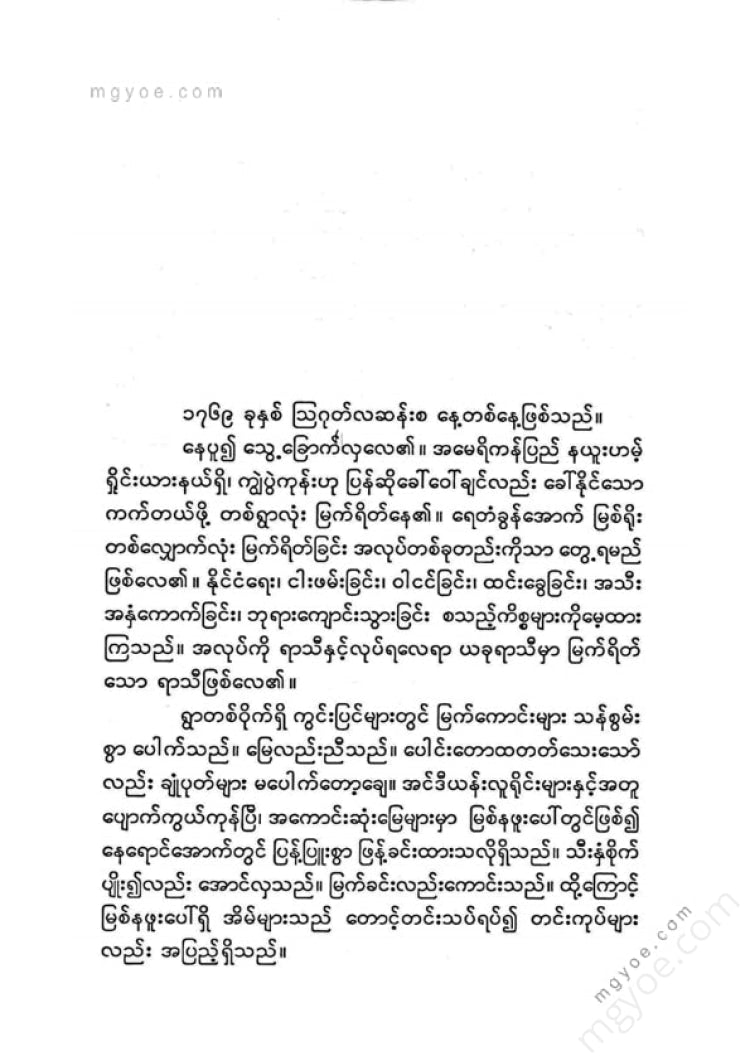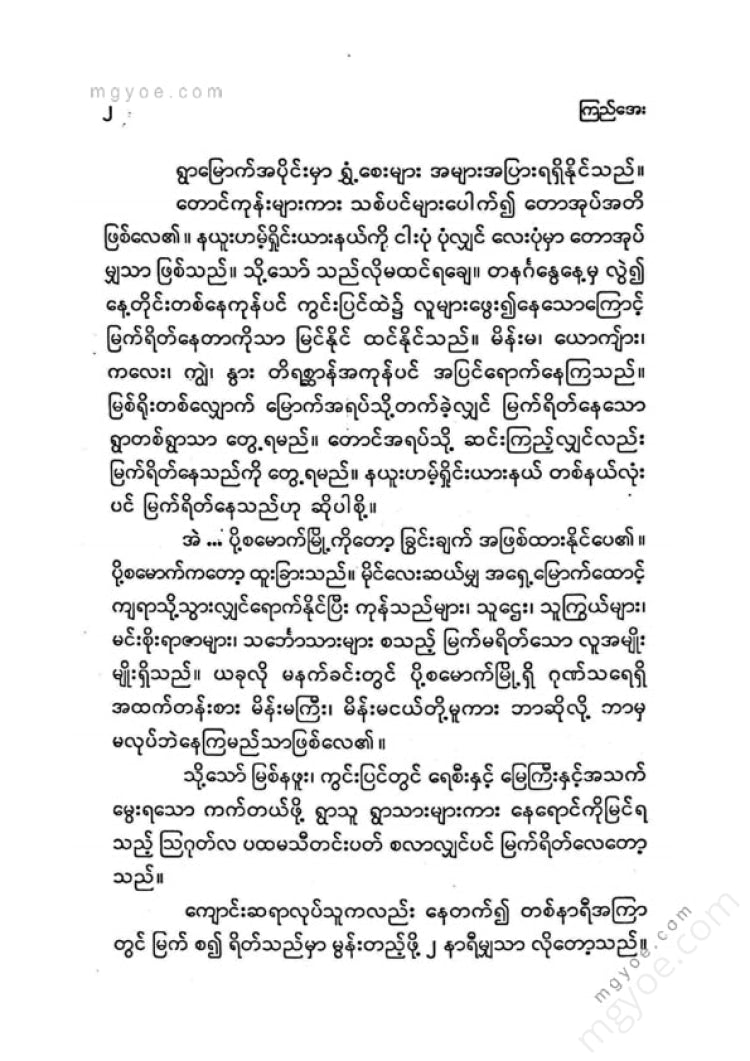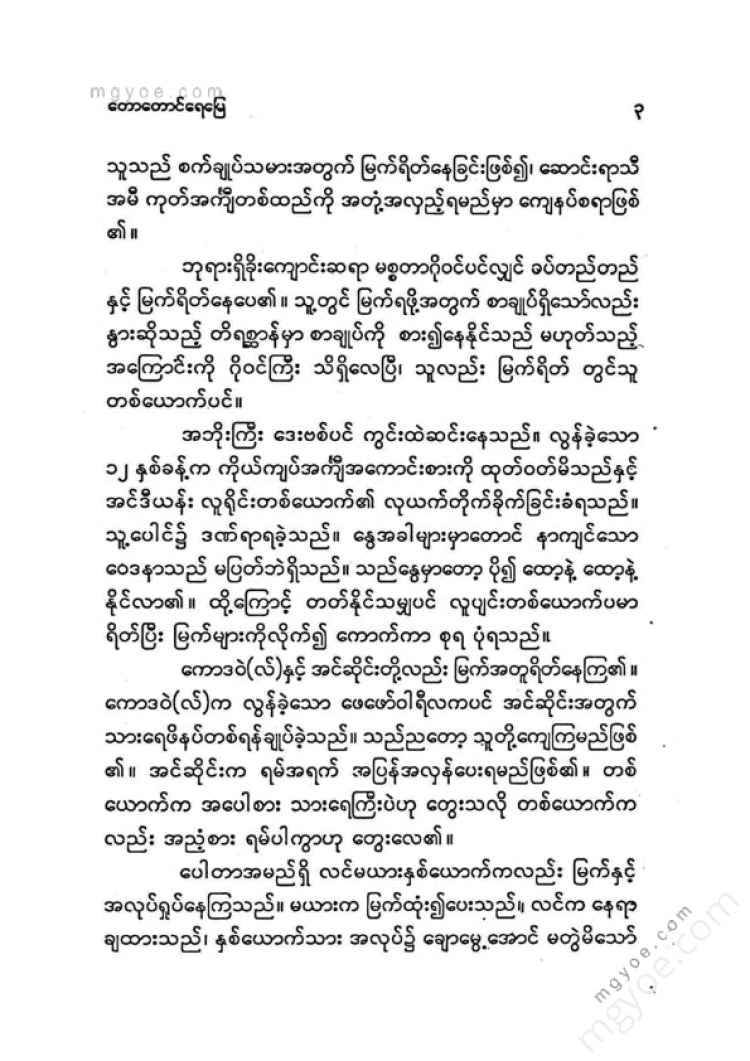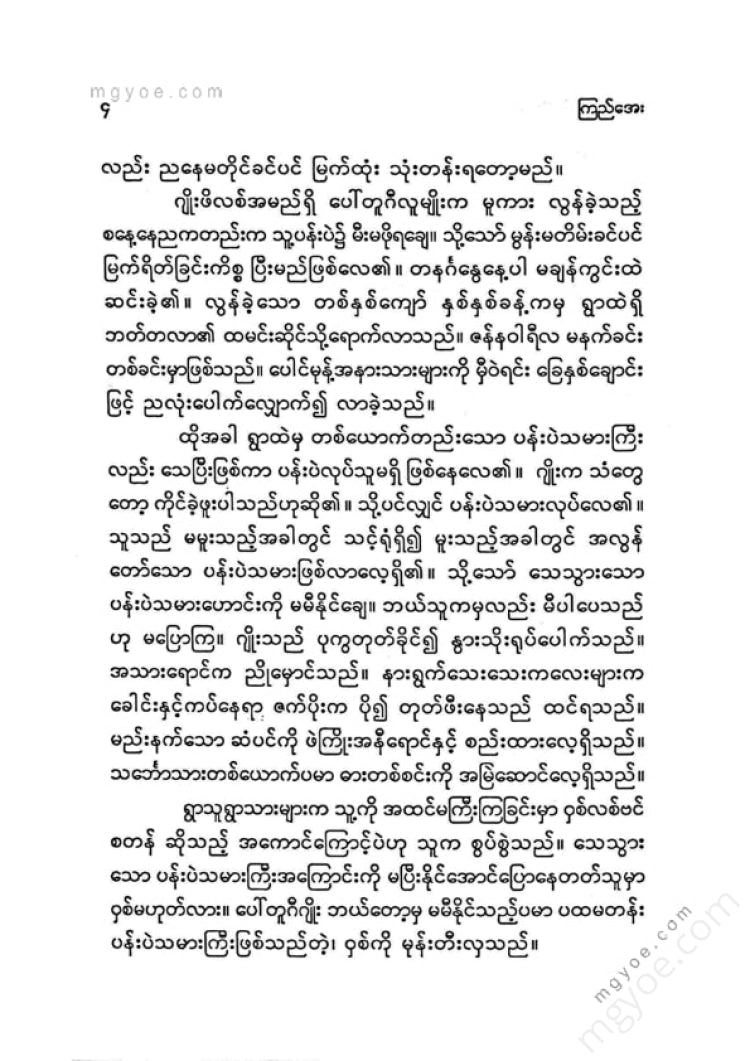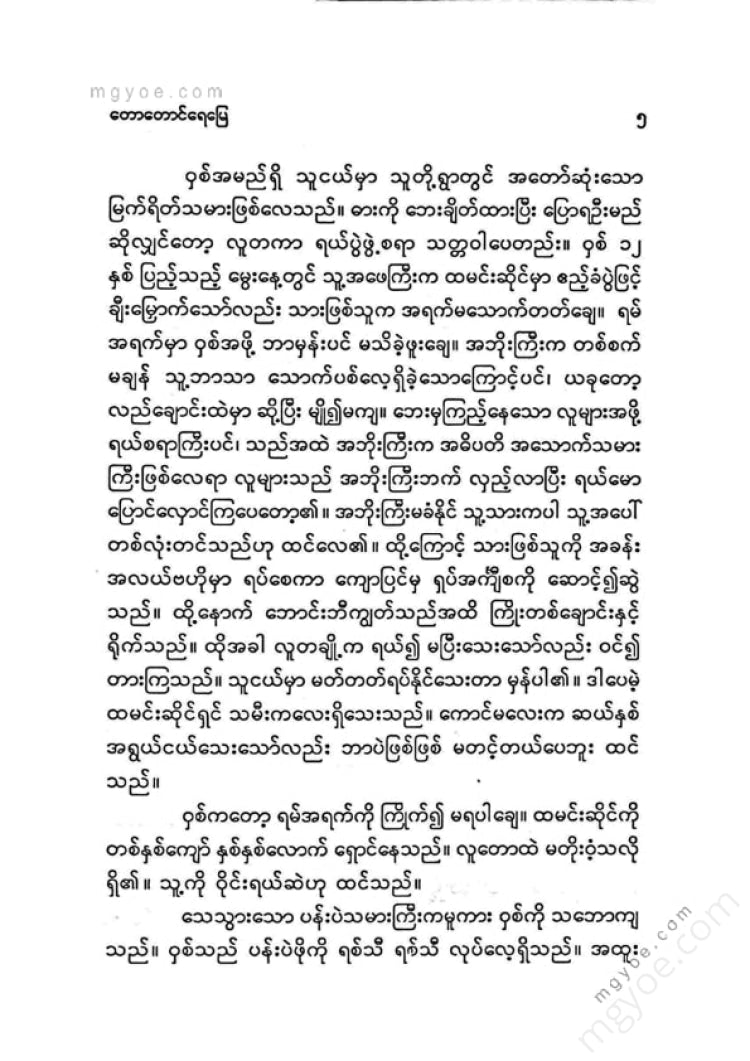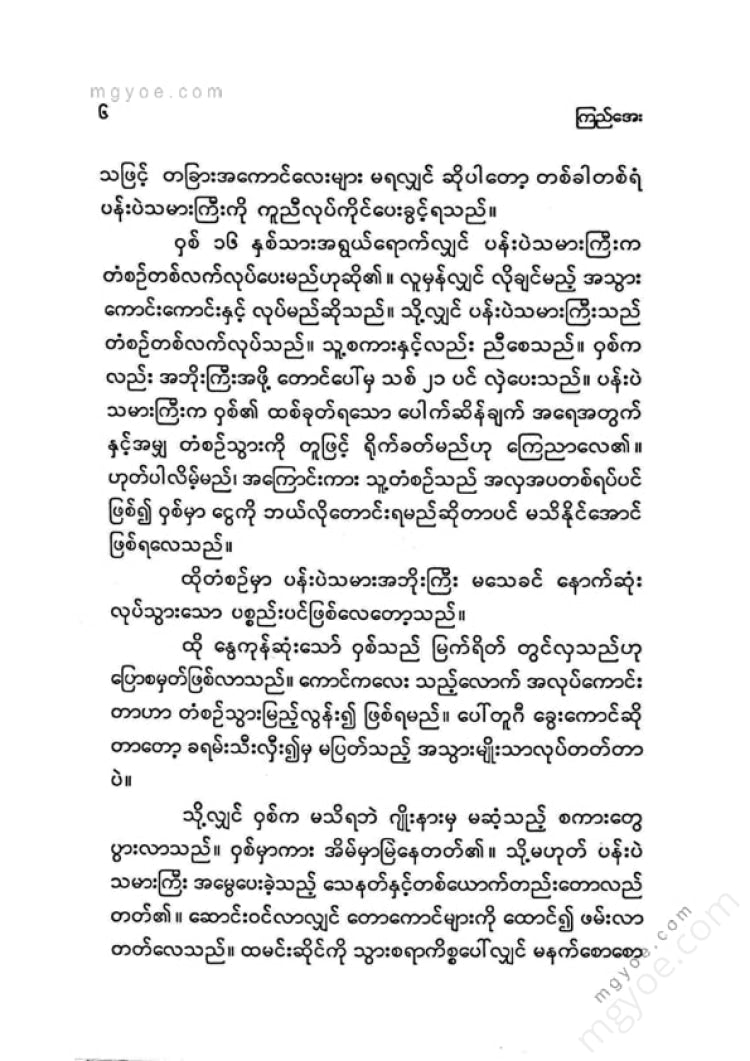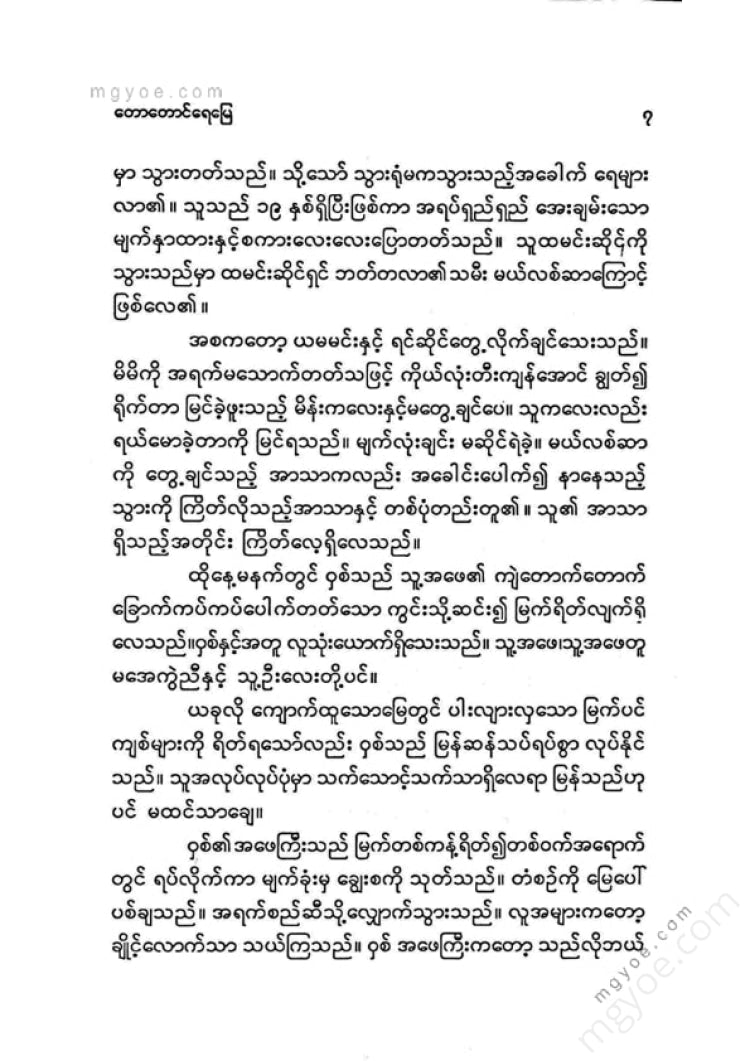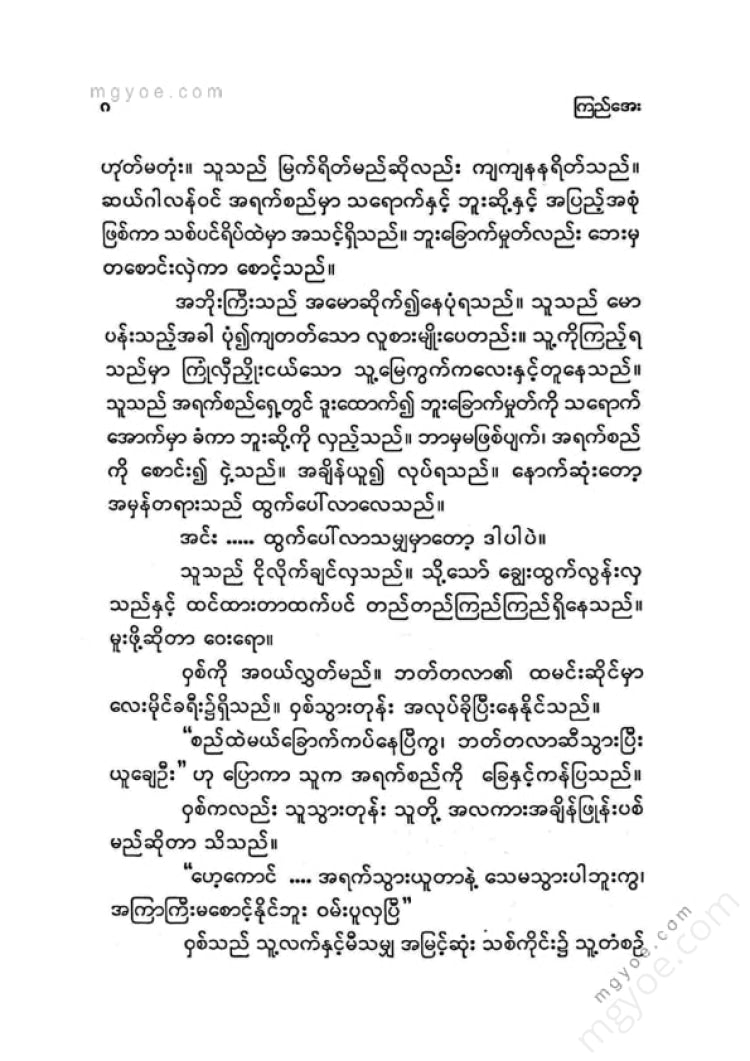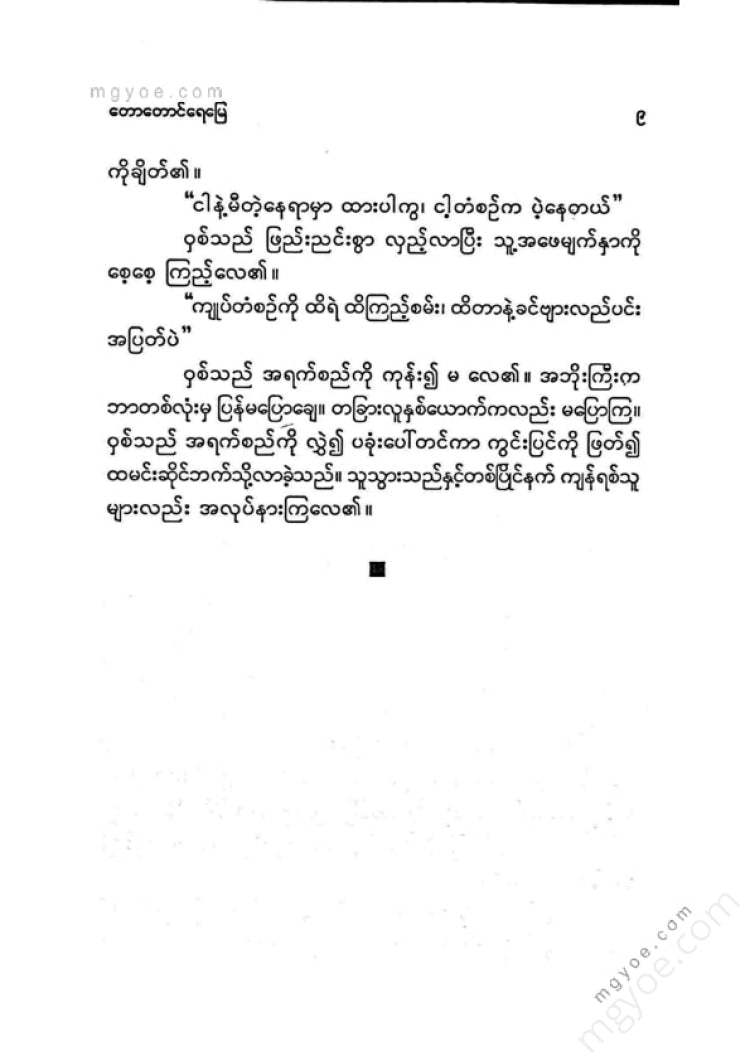စိတ်ကူးချိုချိုစာပေ
Kyi Aye - Forest, Mountains, Water, Land
Kyi Aye - Forest, Mountains, Water, Land
Couldn't load pickup availability
It was the first day of August, 1769.
The sun was hot and dry. In the village of Cattleforth, also known as Buffalo Hill, in the United States, the entire village was busy mowing the lawn. Along the river below the falls, mowing the lawn was the only activity. Politics, fishing, weaving, gathering firewood, picking fruit, and going to church were forgotten. Work was seasonal, and this was the season for mowing the lawn.
The fields around the village are full of good grass. The ground is level. The bushes are still growing, but they are no longer growing. They have disappeared with the Indians. The best land is on the river bank, where it is spread out in the sun. It is also good for growing crops. The grass is also good. Therefore, the houses on the river bank are solid and neat, and there are many stalls. In the northern part of the village, you can get a lot of clay.
The hills are covered with trees and are covered with forests. Four-fifths of New Hampshire is forest. But you wouldn't think so, because every day except Sunday, people are out in the fields all day long, and you would think they were just mowing. Women, men, children, cattle, and all the animals are out there. If you go up the river to the north, you will find only one village mowing. If you look down to the south, you will see mowing. Let's say the whole of New Hampshire is mowing.
Well... Portsmouth was an exception. Portsmouth was unique. If you go about forty miles to the northeast, you will find all kinds of people who don't cut grass: merchants, rich men, noblemen, kings, sailors, etc. On this morning, the ladies and gentlemen of Portsmouth were sitting around doing nothing.
However, the villagers who make a living from the water and soil in the fields along the riverbanks start mowing grass as soon as the sun starts to shine in the first week of August.
The schoolteacher also started mowing an hour after sunrise, and it was only two hours before noon. He was mowing for the tailor, and it was a pleasure to have a coat to wear before winter.
Even the churchwarden, Mr. Gowen, was mowing the grass with a steady hand. He had a contract for the grass, but Gowen knew that an animal called a cow could not live on a contract, and he was also one of the mowing the grass.
Old David is also out in the field. About 12 years ago, he was attacked by a savage Indian while wearing a good coat. He was wounded in the thigh. Even in the summer, the pain was constant. This summer, he was more and more limping. So, like a lazy man, he had to mow and gather the grass and gather it.
Caudwell and Insane were also mowing the lawn together. Caudwell had made Insane a pair of leather shoes the previous February. That night they would make up. Insane would have to give them rum in return. One thought it was a good leather, the other thought it was a bad rum.
A husband and wife named Potter are busy with their work. The wife is weaving the grass. The husband is arranging the work. Although the two of them are not working smoothly, they will have three rows of weaving the grass before evening.
But the Portuguese, named Joe Felipe, had not been able to light a fire in his forge since last Saturday night. But he had finished mowing the grass before the moon set. He went out into the fields on Sunday. It had been more than two years since he had come to the butler's shop in the village. It was a January morning. He had walked all night on his two legs, clinging to the edges of the bread.
Then the only blacksmith in the village died, and there was no blacksmith. Joe said he had handled iron. He was a blacksmith, though. When he was not drunk, he was a good blacksmith, and when he was drunk, he became a very good blacksmith. But he could not equal the old blacksmith who had died. No one could say that Joe had ever equaled him. Joe was a strong, strong man, like a bull. His skin was dark. His small ears were set close to his head, and his bridle seemed to be more prominent. His dark hair was tied with a red ribbon. Like a sailor, he always carried a sword.
He blames the villagers for not thinking of him because of a man named Whis Livingston. Isn't it Whis who keeps talking endlessly about the dead blacksmith? He says he's a first-class blacksmith, someone Portuguese Joe can never match, and he hates Whis.
A boy named Whit was the best lawnmower in the village. He was the laughing stock of the village, even with his sword. On Whit's 12th birthday, his father gave him a party at the tavern, but the boy did not drink. Whit knew nothing about rum. The old man used to drink it himself, and he drank it down the drain, and now he drank it in a stream, and it was a great laugh to the people who were watching. The old man became the greatest drinker, and the people turned to him and laughed at him. The old man could not stand it, and thought that his son had put one on him. So he made his son stand in the middle of the room, and he pulled the shirt from behind him, and then he beat him with a rope until his pants fell off. Then some people laughed and stopped him before he could finish. It was true that the boy could still stand. But the restaurant owner had a daughter. The girl was only ten years old, but she was not beautiful anyway.
But Whis doesn't like rum. He's been avoiding restaurants for a year or two. He doesn't dare to go out in public. He thinks people are laughing at him.
The dead blacksmith, however, liked Whis. Whis used to work the forge, especially when other children were not available, and sometimes he would help the blacksmith.
When Whit was 16 years old, the blacksmith said that he would make him a sickle. If he was a good man, he would make him a sickle with the best teeth he could possibly want. So the blacksmith made him a sickle. He did as he was told. Whit felled 21 trees from the mountain for the old man. The blacksmith said that he would hit the sickle with a hammer for the number of holes Whit would make. He would. Because his sickle was so beautiful that Whit did not know how to ask for money.
As luck would have it, it was the last thing the old blacksmith made before he died.
By the end of that summer, it was said that Whit was a good mower. The boy must have been very lucky to have such a good job. Portuguese dogs are the kind of dogs that only cut eggplants.
Then, without knowing it, Joe began to hear words that did not reach his ears. But Whit always stayed at home. Or he would go out alone with the gun that the blacksmith had given him. When winter came, he would trap and catch wild animals. If he had to go to the restaurant, he would go early in the morning. But he did not go often. He was already 19 years old, tall, with a calm face and a soft voice. He went to the restaurant because of Melissa, the daughter of the restaurant owner.
At first, he wanted to confront Yamamin. He didn't want to see the girl he had seen strip naked and beat him up because he didn't drink. He could see her laughing too. They didn't dare make eye contact. Arthur, who wanted to see Melissa, was just like Arthur, who wanted to grind his tooth that was hurting. He was like Arthur, who was always grinding his teeth.
That morning, Whit had gone down to his father's sparsely-growing field to mow the grass. There were three people with Whit: his father, his half-brother, and his uncle.
Even though he had to mow thin, thin grass in this rocky soil, Whitt was able to do it quickly and neatly. He worked so comfortably that it didn't seem like he was working fast.
Whit's father had cut a piece of grass, and stopped halfway through, wiped the sweat from his brow, and threw the sickle on the ground. He walked over to the barrel of wine. Most people carried it only a little. Whit's father was not like that. He cut the grass properly. The ten-gallon barrel, complete with a cap and a stopper, was ready in the shade of a tree. The dry barrel was leaning sideways, waiting.
The old man seemed exhausted. He was the kind of man who would collapse when he was tired. He looked like his little plot of land, which had been abandoned. He knelt in front of the barrel of alcohol, holding the dry cork under his arm, and turned the cork. Nothing happened, he tilted the barrel and sighed. It took time. Finally, the truth came out. .
Well...that's all that came out.
He wanted to cry. But he was sweating profusely and was even more determined than he thought. He was far from drunk.
I'll send Whit to buy it. Butler's is four miles away. Whit can stay and work while he's gone.
"The barrel is getting dry, go get it from the butler," he said, kicking the barrel with his foot.
Whit knew they would be wasting their time while he was gone.
"Hey, you won't die just by going to get some alcohol. I can't wait too long, I'm already feeling sick."
The witch hooked her sickle on the highest branch she could reach.
"Keep it where I am, my sickle is pointed."
Wiz slowly turned and looked intently at his father's face.
"Try to touch my sickle, it will break your neck."
The old man said nothing. Neither did the other two men. The old man swung the barrel over his shoulder and walked across the field toward the restaurant. As soon as he was gone, the others stopped working.

